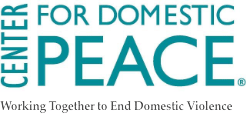Know Your Rights: Domestic Violence is a Crime
YOU HAVE THE RIGHT TO:
➤ Be treated with respect by your partner
➤ Not take responsibility for your partner’s abusive behavior
➤ Get angry or say “NO!,” but not to threaten or use force (except in self-defense) against your partner
➤ Make mistakes, change your mind
➤ Have your own feelings, opinions, and convictions, and express them freely
➤ Have your needs be as important as your partner’s needs
➤ Spend time with your family and friends without being accused or pressured by your partner
➤ Negotiate for change in the relationship
➤ Ask for help or emotional support
➤ Protest unfair treatment or criticism
DOMESTIC VIOLENCE IS A CRIME
Domestic violence is any abuse one person commits against another person who is their current or former spouse, current or former dating partner, co-parent of children, current or former co-habitant, or current or former fiancé(e).
The legal definition of abuse is: causing (or attempting to cause) bodily damage (intentionally or recklessly) or giving a believable impression that bodily damage will happen (including threats).This means that if your partner has pushed you, hit you, raped you, or caused any injury, your partner has committed a crime. If your partner has made you think that he or she will injure you, they have also committed a crime. Vandalism, kidnapping, holding you against your will, and violating restraining orders are also illegal. Other types of abuse aren’t considered criminal but are still violent. These include verbal and emotional abuse, name-calling, and financial abuse (restricting access to money, credit cards, ATM, etc.).
If you live in the United States (married or single, immigrant or not, in the U.S. legally or not) you have many legal rights. One of your rights is the right to be protected by U.S. laws if you are a victim of domestic violence. Many abusers will lie to you about your rights, especially if you are an immigrant in the United States. They want you to believe that you don’t have rights, and that you can get in trouble for reporting their violence. You are protected against domestic violence by U.S. and state laws.

THE RIGHTS OF IMMIGRANTS WHO ARE VICTIMS OF DOMESTIC VIOLENCE
In this country, domestic violence or child abuse is a crime, even if it’s not a crime in your country of origin. If you are an undocumented immigrant and are a victim of crime in this country, you have the same rights as a U.S. citizen to access services for crime victims. This means that if you are confronting domestic violence and you want help, you will not be deported just because you called the authorities or made a police report. You cannot be deported for trying to get a restraining order or testifying in court. You cannot be deported for asking for help from shelters or a crisis line.
Also, if your spouse is a United States resident or citizen and you are a victim of abuse, you may be eligible for U.S. residency without your abusive partner through VAWA (Violence Against Women Act). Even if you aren’t married to a United States resident or citizen, but you have worked with the police or the DA, you might be eligible for a U-Visa. Speak with an immigration attorney to explore your options.
Immigrant Legal Resource Center
All people in the United States, regardless of immigration status, have certain rights and protections under the U.S. Constitution. The ILRC’s Red Cards help people assert their rights and defend themselves in many situations, such as when ICE agents go to a home. Download a Red Card here
LEGALLY, YOU HAVE THE RIGHT TO:
➤ Call the police and other support agencies
➤ Hide yourself and your children for protection from your violent partner, even if your partner is their parent
➤ Refuse sexual activity at any time
➤ Make decisions about your reproductive health without your partner’s permission
➤ Live free of violence and threats
➤ Equal protection of the laws against domestic violence, even if in some way you have broken a law, such as using drugs, driving without a license, or entering the country illegally
For legal assistance and referrals call C4DP’s hotline or visit BayLegal’s Domestic Violence Prevention
415-924-6616 (English/Linea de apoyo)
We want to speak to you in the language that you’re most comfortable with when you call or visit us. Qualified interpreter services, including sign language, are available at no cost, 24 hours a day, 7 days a week during all hours of operations at all points of contact. We do not encourage the use of family, friends or minors as interpreters. Only the services of interpreters and qualified staff are used to provide language assistance. These may include bilingual staff, or Language Line interpreters. In-person, telephone, video, and alternative modes of communication are available.
